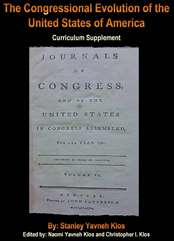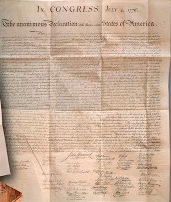 |
| |
             
| ||
| You are in: Virtual Public Library >> Hall of Famous Authors >> William Faulkner | |||||||||||||||||||||||||||||
William Faulkner (September 25, 1897 – July 6, 1962) was a Nobel Prize-winning American author. One of the most influential writers of the 20th century, his reputation is based on his novels, novellas and short stories. He was also a published poet and an occasional screenwriter. Most of Faulkner's works are set in his native state of Mississippi. He is considered one of the most important Southern writers along with Mark Twain, Robert Penn Warren, Flannery O'Connor, Truman Capote, Eudora Welty, and Tennessee Williams. While his work was published regularly starting in the mid 1920s, Faulkner was relatively unknown before receiving the 1949 Nobel Prize in Literature. Since then, he has often been cited as one of the most important writers in the history of American literature.[1] BiographyBorn William Cuthbert Falkner in New Albany, Mississippi, he was the oldest son of Murry Cuthbert Falkner (August 17, 1870 – August 7, 1932) and Maud Butler (November 27, 1871 – October 19,1960). He later changed the spelling of his name to Faulkner. His brothers were Murry Charles "Jack" Falkner (June 26, 1899 – December 24, 1975), author John Falkner (later Faulkner) (September 24, 1901 – March 28, 1963) and Dean Swift Falkner (August 15, 1907 – November 10, 1935). Faulkner was raised in and heavily influenced by the state of Mississippi, as well as by the history and culture of the South as a whole. When he was four years old, his entire family moved to the nearby town of Oxford, where he lived on and off for the rest of his life. Faulkner attended the University of Mississippi (Ole Miss) in Oxford where he was a member of Sigma Alpha Epsilon social fraternity. He enrolled at Ole Miss in 1919, and attended three semesters before dropping out in November 1920.[2] Oxford is the model for the town of "Jefferson" in his fiction, and Lafayette County, which contains the town of Oxford, is the model for his fictional Yoknapatawpha County. Faulkner's great-grandfather, William Clark Falkner, was an important figure in northern Mississippi who served as a colonel in the Confederate Army, founded a railroad, and gave his name to the town of Falkner in nearby Tippah County. He also wrote several novels and other works, establishing a literary tradition in the family. Colonel Falkner served as the model for Colonel John Sartoris in his great-grandson's writing. The elder Falkner was greatly influenced by the history of his family and the region in which they lived. Mississippi marked his sense of humor, his sense of the tragic position of blacks and whites, his characterization of Southern characters and timeless themes, including fiercely intelligent people dwelling behind the façades of good old boys and simpletons. Unable to join the United States Army because of his height, (he was 5' 5½"), Faulkner first joined the Canadian and then the British Royal Air Force, yet did not see any World War I wartime action. Faulkner himself made the change to his last name in 1918 upon joining the Air Force. But according to one story, a careless typesetter simply made an error. When the misprint appeared on the title page of Faulkner's first book and the author was asked about it, he supposedly replied, "Either way suits me."[3] Although Faulkner is heavily identified with Mississippi, he was living in New Orleans in 1925 when he wrote his first novel, Soldiers' Pay, after being influenced by Sherwood Anderson to try fiction. The small house at 624 Pirate's Alley, just around the corner from St. Louis Cathedral, is now the premises of Faulkner House Books, and also serves as the headquarters of the Pirate's Alley Faulkner Society. Faulkner served as Writer-in-Residence at the University of Virginia from 1957 until his death. In 1959 he suffered serious injuries in a horse-riding accident. Faulkner died of a heart attack at the age of 64 on July 6, 1962, at Wright's Sanitorium in Byhalia, Mississippi. 
Start your search on William Faulkner.
The Congressional Evolution of the United States Henry Middleton
Unauthorized Site: This site and its contents are not affiliated, connected, associated with or authorized by the individual, family, friends, or trademarked entities utilizing any part or the subject's entire name. Any official or affiliated sites that are related to this subject will be hyper linked below upon submission and Evisum, Inc. review. Research LinksCopyright©
2000 by Evisum Inc.TM. All rights
reserved.
|
|||||||||||||||||||||||||||||
             

| | |||




